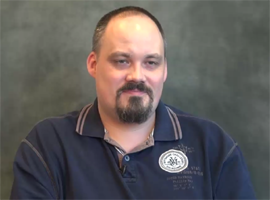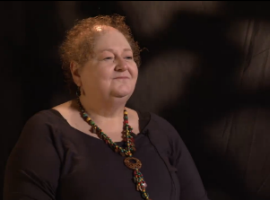InfoQ Homepage learning Content on InfoQ
Interviews
RSS Feed-
Glen Ford on Cargo Cult Agile
Glen Ford discusses why imitating a culture without understanding it to become agile can be dangerous, what can happen when you copy a culture, and what organizations can do if they want to change their culture. He gives several examples on culture change and dives into what can make a culture chance successful.

-
Jeffrey Fredrick on Harsh Realities and Learning
Jeffrey Fredrick discusses how human psychology can work against successful agile adoption. He explains harsh realities like accepting being wrong where people don't like to be wrong and spotting mistakes from others while not seeing your own mistakes, and explores how you can squeeze out the learning in different situations and really learn from mistakes.

-
J. Paul Reed on Healthy Postmortems, Complex Systems and Resilience
Reed explains what a popcorn retrospective is, what a healthy DevOps organization looks like (hint: resilience and learning), why blame is not always evil and why automation is not going to save us. Also root cause analysis is not a "thing" and a lot more food for (DevOps) thought!

-
Improving Technical Skills and Agile Practices
Ruud Wijnands talks about things that can and do go wrong with Agile transitions, improving technical skills and practices, supporting people in learning, the value that agile can bring to organizations and giving managers more insight into the possibilities of agile, helping teams to increase their agility and what managers can do to increase the success of agile transitions.

-
Diana Larsen on the Conditions for Best Job Ever, Team Communication and Five Rules of Learning
Diana talks about how to create the conditions for having the best job ever and describes a model for team collaboration and communication. She explains five simple rules for ongoing learning at the individual, team and organization level.

-
Amr Elssamadisy – Safety
Amr Elssamadisy, founder of Agile Culture New York and author of the book Agile Adoption Patterns, shares his thoughts on why safety is essential to Agile success. We know that learning is essential for successful agility, and teams learn best through failure – but failure is inherently unsafe. The key to success is in making things safe. Without safety you cannot learn effectively from failure.

-
Dan Mezick – Engagement
Dan Mezick, author of the book The Culture Game, shares his insights on engagement as the fuel of successful and lasting Agile adoptions. Pulling examples from Open Spaces and the computer gaming industry, Dan explains how they both implement four basic rules: have a clear goal, a clear set of rules, a good feedback system, and support an opt-in participation strategy.

-
Double-Loop Learning with Derek W. Wade and Susan Eller
Derek W. Wade and Susan Eller discuss double-loop learning, Chris Argyris, frames, simulations, hospitals, mental models and why double-loop learning is so much more bad-ass than single loop learning.

-
Craig Larman on the Challenges of Scaling Scrum to Large Organizations
In this interview, Craig Larman discusses the many challenges you face when scaling scrum to large organizations. These challenges stem from decisions to use component teams over feature teams; adopting out sourcing without careful consideration for the impact of that decision; and over specialization of skills and limited learning which leads to waste, bottlenecks, and poor performance.

-
Elastic Leadership
Roy Osherove talks about the challenges and opportunities of being a software team leader. He shares his hard won experiences in growing teams, their members and influencing behaviour. Being a software team lead is about getting out of your comfort zone, creating trust and commitment in your team but also about knowing about team maturity levels and the different approaches needed.

-
Venkat Subramaniam on JVM Languages
Venkat Subramaniam talks about the characteristics of JVM languages like Groovy, JRuby and Scala, and their applicability in enterprise applications. He also mentions several implementation details and finishes by addressing issues of lifelong learning for developers.

-
Brian Foote and Dave West Discuss Craftsmanship
Brian and dave discuss what it might mean to be a true craftsman and why the idea of craft has become so popular of late. Other issues discussed include the question of why craft seems to be focused almost exclusively on programming and why everyone does not aspire to be a craftsman? Programming as performance art, programs as literary artifacts, and code "habitability" round out the discussion.
